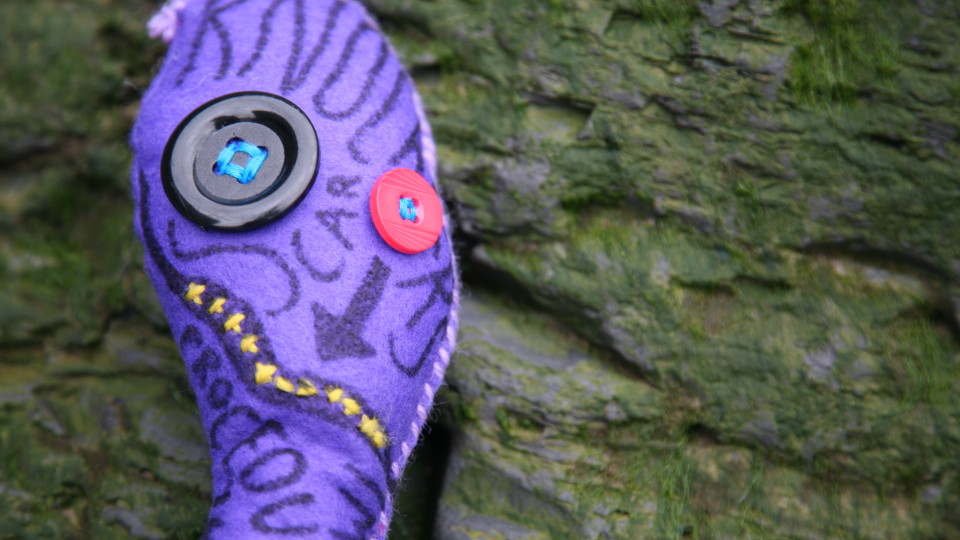burn baby burn
Reflection 1
We are going down to my hometown in Somerset, and we’re going to the beach, Kilve. I’ve made a doll with lots of words on it, words that I associate with cancer. And we’re going to burn it. It’s sort of a ritual act, and it’s a bit of an adventure, to have some fun, to have a few beers on the beach, and to get out of the city and to have a nice time as well.
We did this chant at Drama School – ‘Tommyknockers, Tommyknockers, knocking at my door’ – I thought about it recently, and I realised that it had a different meaning to me now, because of the word ‘knockers’ in there. When people are in the staff room at work and saying, you know, ‘She’s got lovely tits’, or looking at Page 3 and that kind of thing, it all kind of resonates in a different way now that I’ve had breast surgery. When people talk about cosmetic surgery – or anything like that – it makes me feel… not uncomfortable… but it’s a highlight in my brain to go ‘Hello, I have cancer’. It’s not that I feel annoyed or resentful about that. It’s about acknowledging that words have been given new meaning by something that happened, and being ok with that.
– Laura
Reflection 2
‘Surgery’, ‘Recovery’, ‘Procedure’, ‘Negative’… What’s going on with the language is that you’ve got words, which are normally so neutral and they suddenly become charged. Some words have an ordinary lay meaning but have an exact meaning for medics, which may be quite different. A classic one is ‘Progress’. The word ‘Progress’ is normally quite good in the outside world. When a doctor says that your disease is progressing, you think ‘Oh Great!’ whereas Progressive Disease means that the disease has progressed during treatment — that it has continued growing while we’ve been giving chemotherapy. Same with positive and negative. Usually positive is a positive thing, and negative a negative thing, but not so in the case of diagnosis. An ordinary word is taken and given an exact meaning in their world, and it is pulled around willy-nilly for you, the patient.
Do you need to give up your internal mental and linguistic structure in order to be able to relate to what the doctor is saying? Do you need to hand over the whole of your mind? Do you have to be a cancer expert? What happens to your personal understanding of language when you learn to speak Cancer?
– Sue



